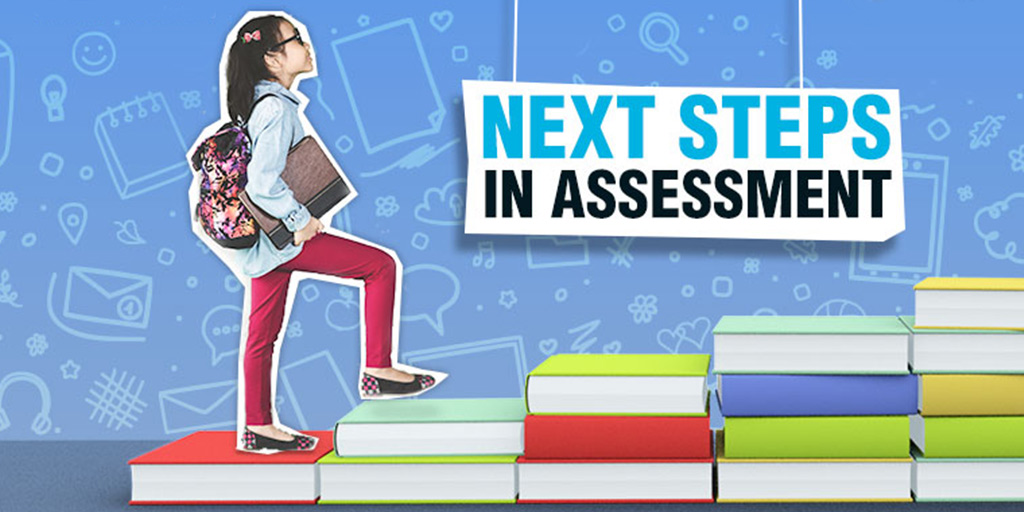Assessment in English
By Zoe Enser Assessment is one of the most important things we do in the classroom. It is part of the ongoing dialogue between teacher and learner...

Login | Support | Contact us
Planned outage: due to system upgrades, there will be no access to assessments, admin, reporting or registration from 23 to 27 February 2026. This downtime affects the following assessments: ASPECTS, BASE, MidYIS, Yellis, Alis, IBE Insight and Cambridge Select Insight. Please do not schedule assessments during this period. If you have any questions, please contact Customer Support at insight@cambridge.org.
If you are a new customer and would like to register for one of our assessments while our registration form is unavailable, please contact Customer Support at insight@cambridge.org.
Cambridge Insight : Nov 30, 2017 12:20:00 PM
2 min read

A new report, Testing the Water: How assessment can underpin, not undermine, great teaching, published today by LKMCO and Pearson, calls for more support for teachers and greater understanding of assessment across education sector.
The report is based on a year-long research project including a national survey of over 1,000 teachers in England, opinions from focus groups, an online consultation, thought-pieces from fourteen leading educationalists, and three international case studies.
The report identifies eleven major challenges for educational assessment and makes twenty two recommendations for ensuring assessment “underpins, not undermines, great teaching”.
A key finding in the report is that schools should make greater use of standardised testing packages to assess, benchmark and report on pupil achievement in specific knowledge and skills areas.
The report suggests that assessment providers should provide information about the reliability of their assessments, that is easily accessible and digestible.
The report also highlights the benefits of using standardised assessment in schools to help:
Increased use of standardised assessments in school may also help to address the issue of the lack of common language for describing pupil achievements, particularly at primary level.
A further key finding highlights the need for greater ‘assessment literacy’ among education professionals, beginning with teacher training. The project found that:
The report calls for reforms to teacher training, including a compulsory test at the end of initial teacher training, to ensure teachers joining the profession have mastered key elements of the training curriculum, including assessment.
“If you want to change teacher’s behaviour, and you want to engage with something that’s as complex as assessment, you’re not going to do this in half day or twilight session.” - Professor Rob Coe
The report also features contributions from a group of prominant educationalists including Cambridge Insight's former Director, Professor Rob Coe; Daisy Christodoulou; Geoff Barton, and Dame Alison Peacock.
These experts were asked to contribute short thought-pieces, addressing the statement:
‘If I could wave a magic wand and change one thing about assessment in English schools, it would be…’.
Professor Coe’s magic wand aims to create a professional learning culture around assessment:
‘Exactly how magic is this wand? Presumably it is cheating to say the one thing I would change is to make all assessment perfect, in every way, forever?
If I have to be more specific, I think there are three main things I would like to see improved:
So that looks like three things, and my magic wand can only deliver one change. But I don’t think this is cheating, because all three depend on the same change: building the skill, understanding, expertise and experience of teachers in their use of assessment. Hence, my magic wand will create an infrastructure and culture that promotes and requires substantial, sustained and effective professional learning about assessment as a routine expectation for every teacher. From that, the rest follows.’
Read the full report
Find out more about Cambridge Insight’s range of standardised assessments

By Zoe Enser Assessment is one of the most important things we do in the classroom. It is part of the ongoing dialogue between teacher and learner...

Assessments are a vital part of school life. There are many different types of assessments, they happen at different points in a school year and for...

"It is critical to conduct learning assessments to evaluate their effectiveness, improve their implementation and to pave the way for hybrid...